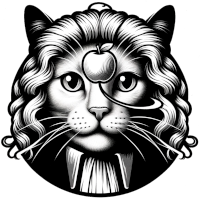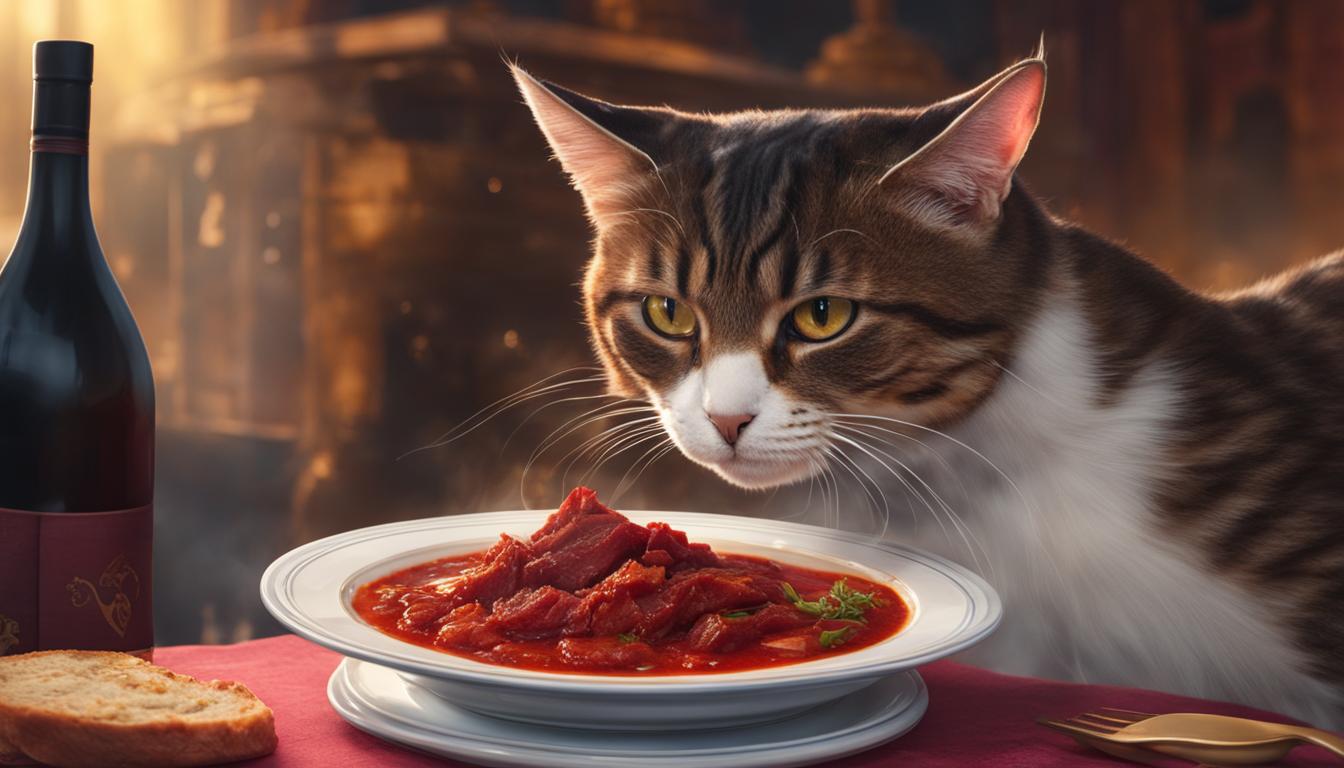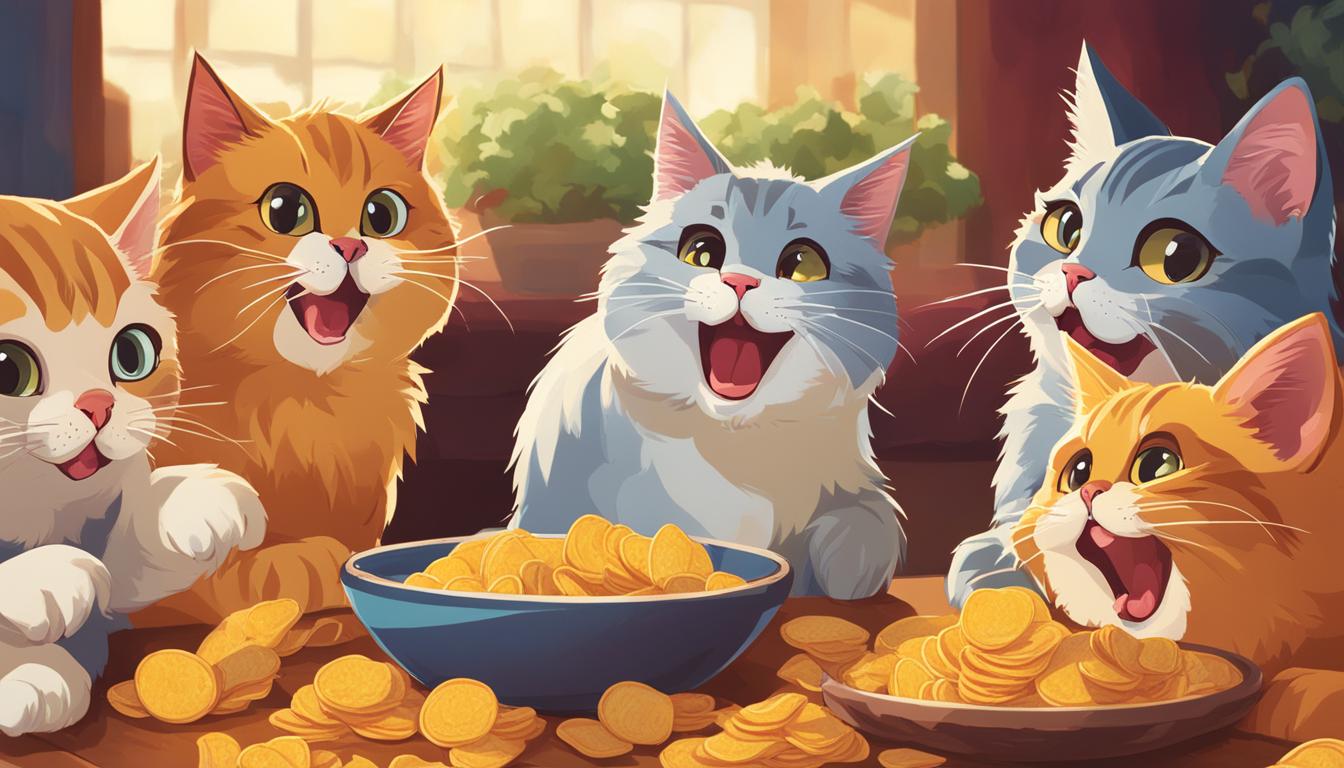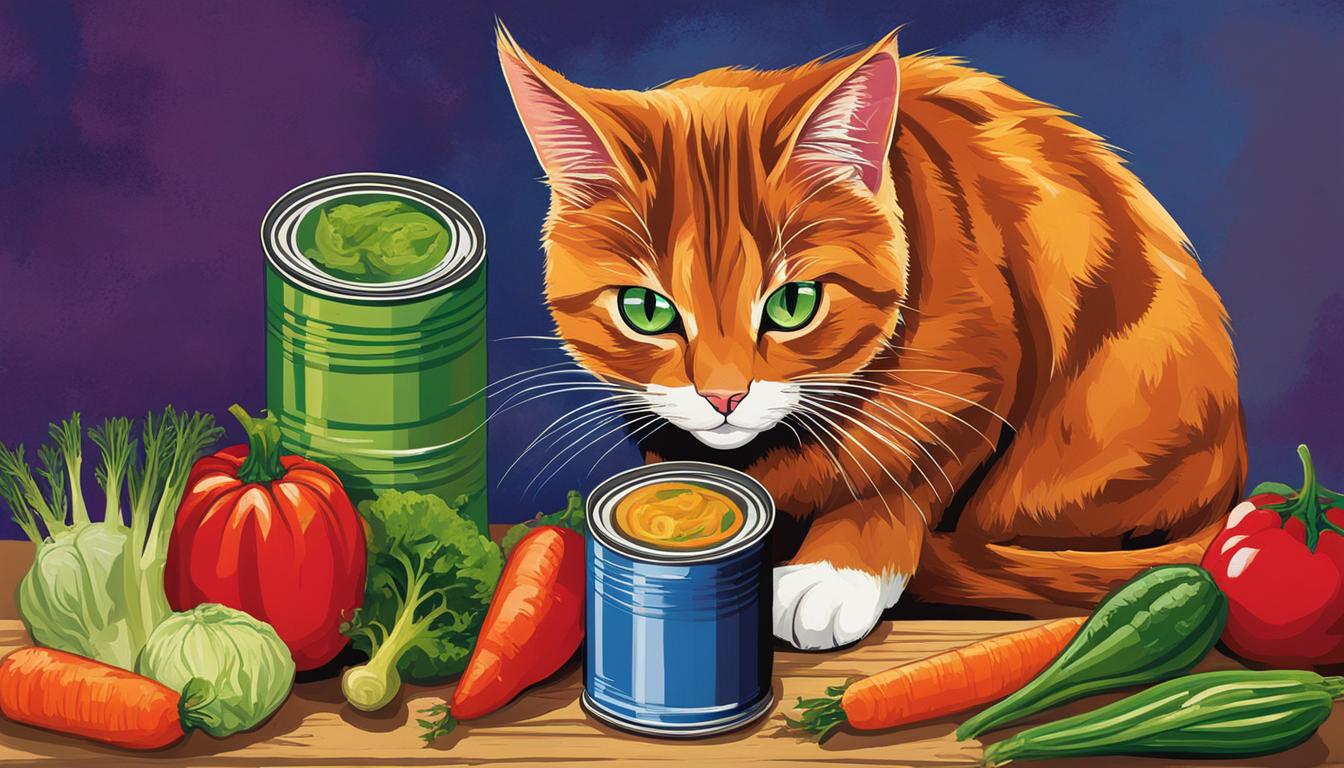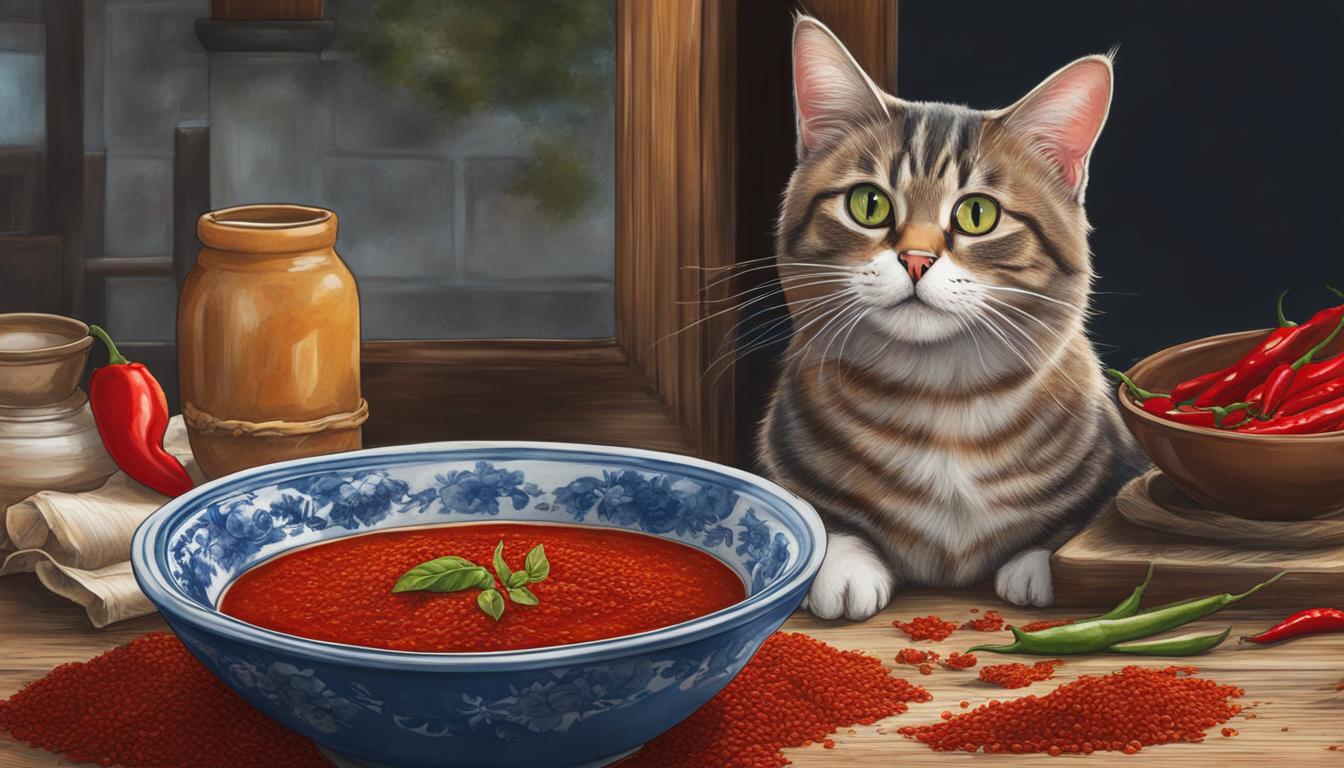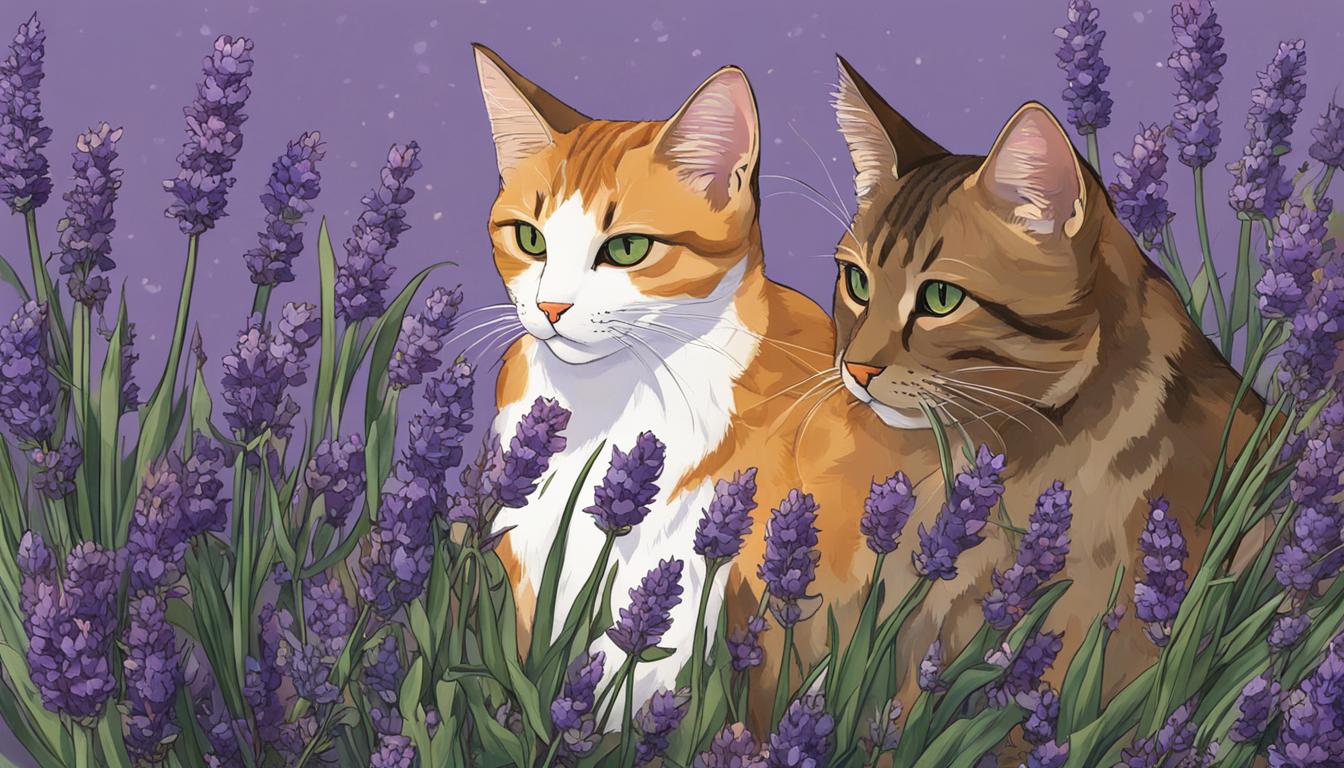Hey there, fellow feline enthusiasts! Today, I want to dive into a curious topic that has sparked my interest – cooking for cats. Now, I know we humans love to experiment in the kitchen and concoct all sorts of tasty treats, but what about our furry friends? Specifically, can cats eat foods cooked in alcohol? Let’s find out!
Now, before we get whisked away in culinary adventures, it’s essential to understand the effects of alcohol on our beloved feline companions. Just like with humans, alcohol can wreak havoc on a cat’s liver and brain. Even small amounts can be incredibly dangerous, potentially leading to alcohol poisoning in cats. It’s a serious matter that shouldn’t be taken lightly.
Picture this: a mere two teaspoons of whisky can throw a 5-pound cat into a coma. And if they consume a little more, it could even be fatal. The higher the alcohol content, the worse the symptoms become. So, it’s vital to keep all alcoholic substances and foods containing alcohol well out of a cat’s reach to ensure their safety and well-being.
Key Takeaways:
- Alcohol has the same harmful effects on cats’ liver and brain as it does on humans.
- Even small amounts of alcohol can be extremely dangerous for cats.
- Just two teaspoons of whisky can cause a coma in a 5-pound cat.
- Ingesting alcohol can lead to alcohol poisoning in cats, which can result in severe illness or death.
- For the safety of our feline friends, all alcoholic substances and foods with alcohol should be kept out of their reach.
The Dangers of Alcohol for Cats
When it comes to cats and alcohol, it’s important to understand the risks involved. While humans may enjoy a cold beer on a hot day, cats should never consume any form of alcohol, including beer. Why is beer harmful to cats? Let’s take a closer look.
One of the main concerns with beer for cats is the presence of hops and yeast. Beer is brewed using these ingredients, which can be toxic to felines. Cats that ingest beer yeast may experience gastrointestinal upset and, in some cases, even alcohol poisoning. It’s important to note that the ingredients in beer are not suitable for a cat’s nutritional needs and can cause digestive issues.
So, what should you do if you want to treat your cat to a special beverage? Instead of offering alcohol, there are plenty of alcohol-free cat recipes available that provide safe and nutritious alternatives. These recipes use cat-friendly ingredients and are specifically designed to meet their nutritional requirements. From tasty bone broth to refreshing herbal infusions, there are many options to choose from that your cat will love.
| Table: Alcohol-Free Cat Recipes | ||
|---|---|---|
| Recipe | Ingredients | Description |
| Refreshing Catnip Tea | Catnip, water | A soothing tea infused with catnip that can help calm and relax your cat. |
| Paw-some Bone Broth | Chicken or beef bones, water, vegetables | A nutritious and flavorful broth that provides essential nutrients for your cat. |
| Tuna Water Ice Cubes | Tuna water | A fun and refreshing treat for your cat on hot summer days. |
Remember, it’s crucial to keep all alcoholic beverages and foods containing alcohol away from cats to avoid any potential harm. By offering them safe and alcohol-free alternatives, you can ensure that your feline friend stays healthy and happy.
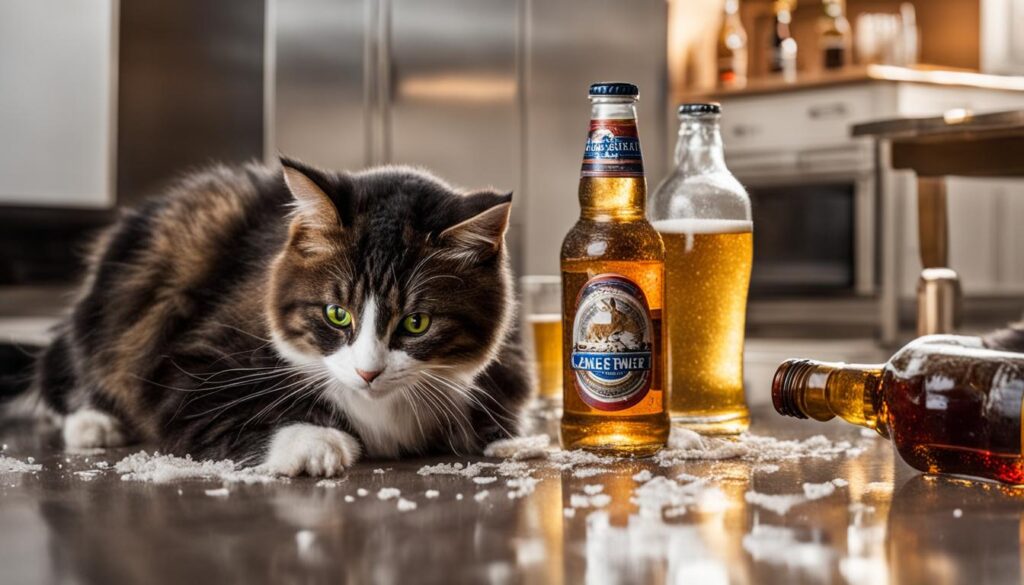
Other Dangerous Foods for Cats
When it comes to keeping our feline friends safe and healthy, it’s not just alcohol that we need to be mindful of. There are several other foods that can be harmful or even toxic to cats if ingested. It’s important for cat owners to be aware of these potential dangers and take steps to prevent their cats from accessing these foods.
Onions and Garlic
While onions and garlic may add flavor to our meals, they should be kept far away from our feline companions. Both onions and garlic contain compounds that can cause damage to a cat’s red blood cells, leading to a condition called anemia. Even small amounts of these foods can be harmful, so it’s best to avoid giving them to your cat altogether.
Raw Eggs and Raw Meat
Cats are carnivores and may seem like they would enjoy a taste of raw meat or eggs. However, both raw eggs and raw meat can pose risks to their health. These foods can contain bacteria such as salmonella or E. coli, which can cause food poisoning in cats. It’s best to stick to cooked meats and avoid giving your cat any raw eggs or meat.
Chocolate, Caffeine, Grapes, and Raisins
We all know that chocolate and caffeine can be harmful to dogs, but they can also be dangerous for cats. These substances contain theobromine and caffeine, which are toxic to cats and can lead to symptoms such as vomiting, diarrhea, and even seizures. Grapes and raisins, while harmless to humans, can cause kidney failure in cats, even in small amounts. It’s essential to keep these foods out of reach of your feline friend to protect their health.
By being aware of the dangers posed by onions, garlic, raw eggs, raw meat, chocolate, caffeine, grapes, and raisins, cat owners can ensure that their feline companions stay safe and healthy. It’s always better to be cautious and stick to a diet that is specifically formulated for cats, rather than risking their well-being by feeding them potentially harmful foods.
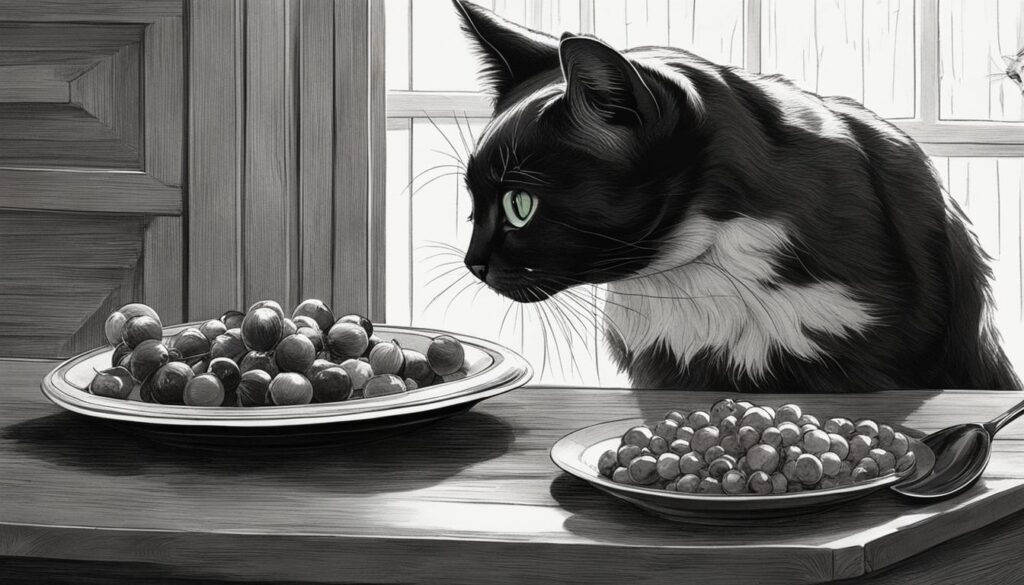
The Risks of Milk and Dairy Products
When it comes to cats and milk, it’s common to picture a contented feline lapping up a saucer of creamy goodness. But the truth is, most cats are lactose intolerant, meaning their digestive systems cannot properly process dairy foods like milk.
Lactose intolerance in cats occurs when they lack the necessary enzyme, lactase, to break down lactose, the sugar present in milk. As a result, consuming milk can lead to digestive upset and diarrhea in cats. While some cats may tolerate small amounts of milk without any issues, it is generally best to avoid feeding them milk or other dairy products altogether.
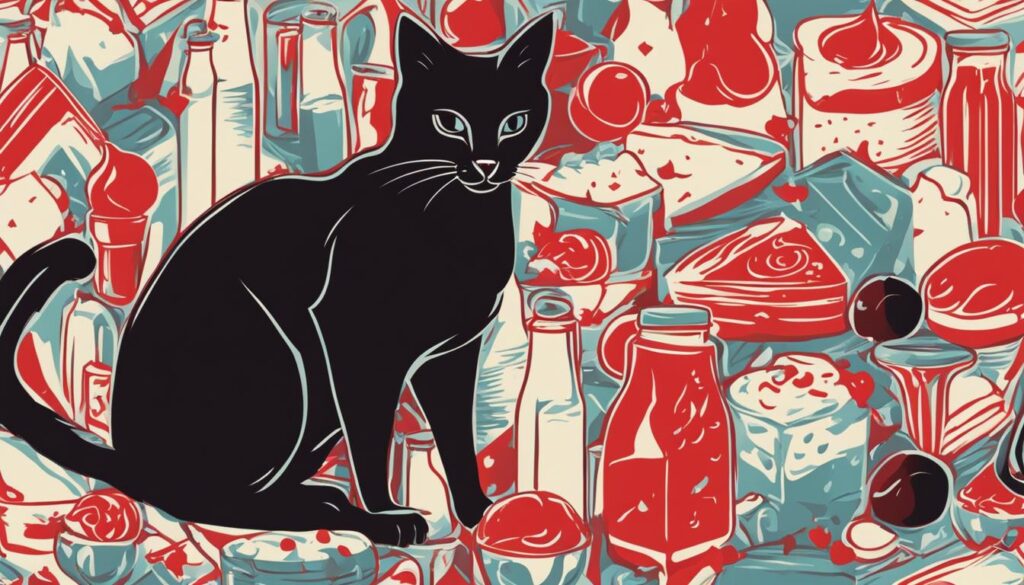
It’s important to remember that kittens should only drink their mother’s milk, as it is specifically formulated to meet their nutritional needs. Once they are weaned, they no longer require milk as part of their diet. In fact, feeding adult cats milk can be harmful to their health and well-being.
In Conclusion: While it may be tempting to treat your cat to a little milk now and then, it’s best to prioritize their safety and stick to a balanced and complete cat food that meets their nutritional requirements. Remember, cats and milk don’t mix well, so opt for cat-friendly alternatives instead.
Conclusion
So, after diving into the world of cooking for cats, it’s clear that we need to prioritize their safety and well-being. While it may be tempting to share our culinary creations with our feline friends, there are certain foods that we should avoid feeding them altogether.
When it comes to cat food safety, it’s best to stick to balanced and complete cat food that is specially formulated to meet their nutritional needs. These commercial cat foods are designed with the right blend of proteins, vitamins, and minerals that cats require to thrive.
While some human foods may be safe for cats in moderation, it’s important to be aware of the foods to avoid for cats. Steer clear of foods cooked in alcohol, as well as other potential dangers like onions, garlic, raw eggs, raw meat, chocolate, caffeine, grapes, and raisins. These foods can cause a range of issues, from gastrointestinal upset to life-threatening conditions.
Remember, our cats rely on us to make the best choices for their health. So, let’s keep them safe, nourished, and content by providing them with the right food that aligns with their specific dietary needs. Happy cooking, but always with your furry friend’s health in mind!
FAQ
Can cats eat foods cooked in alcohol?
No, cats should not consume any foods cooked in alcohol. Alcohol has the same harmful effects on a cat’s liver and brain as it does on humans, and even small amounts can be extremely dangerous for cats. Ingesting alcohol can lead to alcohol poisoning, which can result in severe illness or even death.
Are beer and other alcoholic beverages harmful to cats?
Yes, cats should never consume any form of alcohol, including beer. Beer contains ingredients that are toxic to cats, such as hops and yeast. Consuming beer yeast can cause gastrointestinal upset and potentially lead to alcohol poisoning. It is important to keep all alcoholic beverages and foods containing alcohol away from cats.
What other foods should cats avoid?
Cats should avoid consuming onions, garlic, raw eggs, raw meat, chocolate, caffeine, grapes, and raisins. These foods can cause various health issues, including damage to red blood cells, anemia, food poisoning, and kidney failure. It is crucial to be aware of these harmful foods and ensure that cats are not exposed to them.
Can cats drink milk and consume dairy products?
Most cats are lactose intolerant, which means their digestive system cannot properly process dairy foods like milk. Consuming milk can cause digestive upset and diarrhea in cats. While some cats may tolerate small amounts of milk without any issues, it is generally best to avoid feeding them milk or other dairy products.
What is the best approach to cooking for cats?
It is best to prioritize a balanced and complete cat food that is specifically formulated to meet their nutritional requirements. Cooking for cats should be done with caution, as many human foods can be harmful or toxic to them. Stick to cat-friendly ingredients and avoid foods cooked in alcohol or other potentially dangerous substances.
